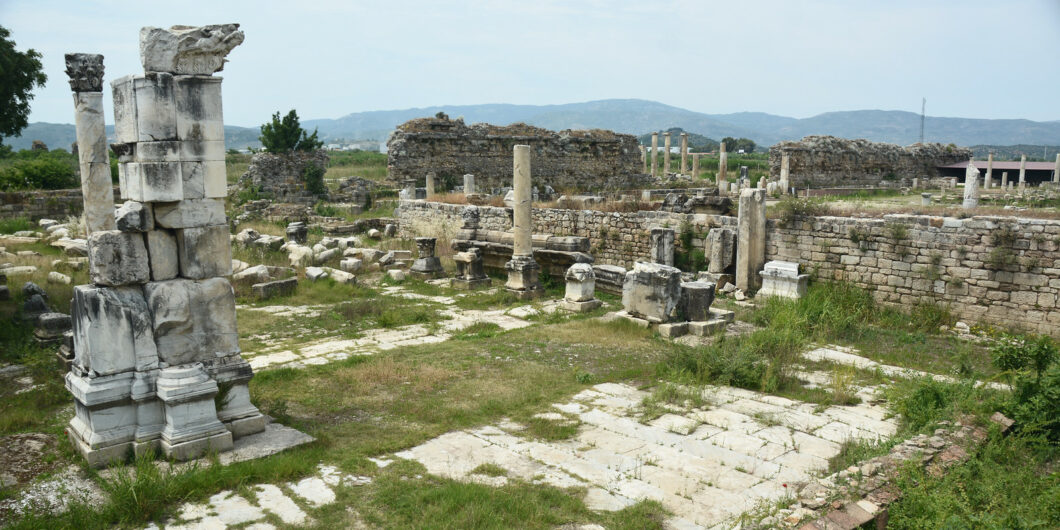No Time to Die wants us to remember that obligations to family, nation, and humankind are the pivot points of the good.
More Than a Symbol
I thank Graham McAleer for his thoughtful review of The Narrow Passage: Plato, Foucault, and the Possibility of Political Philosophy.
McAleer makes a number of intelligent observations and fair-minded criticisms. My most substantial disagreement concerns his claim that Eric Voegelin provides a ready solution to our dilemmas. McAleer writes:
Voegelin argues that an enduring polity has a resilient symbol that opens space for both reason and passion. He gave this symbolic phenomenon the fancy name differentiation. A symbol worthy of humane politics delivers solidarity and facilitates persons differentiating themselves from the whole, able to frame theories, pursue interests, and indulge foibles. Symbols have “buy-in,” they express a people’s sense of cosmos which eliminates the irrational seesaw between hauteur and self-pity. Voegelin gives a nod to postmodernism by reexploring something the Enlightenment closed off, the value of myth.
In The Ecumenic Age, Voegelin wrote, “No more than the cosmos, I had to conclude therefore, will the cosmogonic myth disappear. Any attempt to overcome, or dispose of, the myth is suspect as a magic operation, motivated by an apocalyptic desire to destroy the cosmos itself.” Voegelin’s political thinking examines the symbols that document how peoples have thought about their place in world order and history.
This is a rather abstract and antiseptic conception of the sources of meaning in human life; and it helps explain why McAleer understates my book’s exploration of religion, the holy, and the need for divine or sacred authority in politics. Despite several references to Plato’s Laws, McAleer seems to overlook the dialogue’s crucial opening line: “A god, stranger, or some man was it who created your laws?”
Mythical divinities and transcendent symbols are politically and spiritually empty when they are understood only as myths and symbols. This is one of the key problems I grapple with in the book. We live in a relentlessly cynical and suspicious age, in which everything is seen as merely symbolic; and we are thus all too willing to accept that truth is nothing but a construct of power. That’s why I find Foucault so relevant.
The postmodernists help us see what it means when the ruling class (i.e. the woke intelligentsia and its bureaucratic enforcement arm) repudiate the idea of objective truth. Foucault shows how political power functions—how it maneuvers, co-opts, and insinuates itself—when truth is simply a narrative, a symbolic construct of the dominant power structure. What we most need, therefore, is the ability to distinguish reality from symbolism, to emphasize the difference between myth and truth, in order to reaffirm that political authority derives its legitimacy from the laws of nature and nature’s God, which are more than mere symbols. To be morally and politically meaningful, genuine piety—the sense that there is something sacred above human will or desire—must be more than a pose. I’m reminded of what Flannery O’Connor said about transubstantiation and the Eucharist: “Well, if it’s just a symbol, to hell with it.”
My book concludes that our best hope lies in returning to the classical and permanent questions about God, nature, and justice.
Of course, recovering genuine piety and an awareness of sacred truth is easier said than done. I freely admit, therefore, that my book is “unfinished.” Just as I resist the idea that Voegelin offers any simple answers for our predicament, I also demur from McAleer’s suggestion that “a longer work might have told us how [Leo] Strauss answered them.” On the contrary, Strauss insisted that “the problems are always more evident than any solutions.” Above all, he meant by this the theological-political problem. For Strauss, the central conundrum of human life pointed, in part, to the choice between two distinct “peaks”: the life of obedient piety, or the life of skeptical inquiry—Jerusalem or Athens.
Because these alternatives are paradoxically incompatible yet complementary, the theological-political problem also points to the ultimate insufficiency of both reason and revelation. Neither, by itself, can supply a fully adequate basis for political life. Unless we deny our ability to make reasonable distinctions between Jehovah and Moloch, or between Athenians and Aztecs (and to deny this would mean denying that our minds are also a gift from God), we must acknowledge the role of reason in distinguishing healthy traditions from barbaric superstitions; the ability to rationally refine and elevate the stabilizing power of custom. Yet reason, untethered from the anchoring authority of the ancient, can be equally problematic. Lincoln’s greatest act of statesmanship was elevating our self-evident truths into our ancient faith.
McAleer is correct to emphasize the enduring importance of Plato’s Laws—which explores with infinite subtlety the indispensable role of piety in political life. But Plato’s wisdom is almost lost to us now. The root of our modern crisis is the radical conceit that we can dispense with the divine and create a purely rational and secular society. That project has gone far toward dissolving traditional piety—and the morality that depended on it—in the acid of hedonistic atheism.
Though I appreciate the earnestness and good intentions of McAleer’s references to Voegelin, I don’t see how an appeal to what are self-consciously seen as mere symbols and myths can help us escape from our current dilemmas. Thus, my book concludes with the much more modest idea that while any solutions remain elusive, our best hope lies in returning to the classical and permanent questions about God, nature, and justice.



